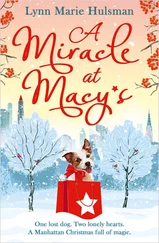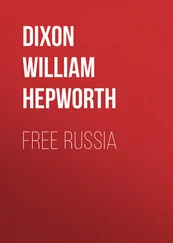Nikolai Nekrasov - Who Can Be Happy and Free in Russia?
Здесь есть возможность читать онлайн «Nikolai Nekrasov - Who Can Be Happy and Free in Russia?» весь текст электронной книги совершенно бесплатно (целиком полную версию без сокращений). В некоторых случаях можно слушать аудио, скачать через торрент в формате fb2 и присутствует краткое содержание. Год выпуска: 2005, Жанр: Поэзия, на английском языке. Описание произведения, (предисловие) а так же отзывы посетителей доступны на портале библиотеки ЛибКат.
- Название:Who Can Be Happy and Free in Russia?
- Автор:
- Жанр:
- Год:2005
- ISBN:нет данных
- Рейтинг книги:3 / 5. Голосов: 1
-
Избранное:Добавить в избранное
- Отзывы:
-
Ваша оценка:
- 60
- 1
- 2
- 3
- 4
- 5
Who Can Be Happy and Free in Russia?: краткое содержание, описание и аннотация
Предлагаем к чтению аннотацию, описание, краткое содержание или предисловие (зависит от того, что написал сам автор книги «Who Can Be Happy and Free in Russia?»). Если вы не нашли необходимую информацию о книге — напишите в комментариях, мы постараемся отыскать её.
Who Can Be Happy and Free in Russia? — читать онлайн бесплатно полную книгу (весь текст) целиком
Ниже представлен текст книги, разбитый по страницам. Система сохранения места последней прочитанной страницы, позволяет с удобством читать онлайн бесплатно книгу «Who Can Be Happy and Free in Russia?», без необходимости каждый раз заново искать на чём Вы остановились. Поставьте закладку, и сможете в любой момент перейти на страницу, на которой закончили чтение.
Интервал:
Закладка:
We've often been told
How the peasant loves drinking;
Not many there are, though,
Who know how he eats.
He's greedier far 390
For his food than for vodka,
So one man to-day
(A teetotaller mason)
Gets perfectly drunk
On his breakfast of goose!
A shout! "Who is coming?
Who's this?" Here's another
Excuse for rejoicing
And noise! There's a hay-cart
With hay, now approaching, 400
And high on its summit
A soldier is sitting.
He's known to the peasants
For twenty versts round.
And, cosy beside him,
Justínutchka sits
(His niece, and an orphan,
His prop in old age).
He now earns his living
By means of his peep-show, 410
Where, plainly discerned,
Are the Kremlin and Moscow,
While music plays too.
The instrument once
Had gone wrong, and the soldier,
No capital owning,
Bought three metal spoons,
Which he beat to make music;
But the words that he knew
Did not suit the new music, 420
And folk did not laugh.
The soldier was sly, though:
He made some new words up
That went with the music.
They hail him with rapture!
"Good-health to you, Grandad!
Jump down, drink some vodka,
And give us some music."
"It's true I got up here,
But how to get-down?" 430
"You're going, I see,
To the town for your pension,
But look what has happened:
It's burnt to the ground."
"Burnt down? Yes, and rightly!
What then? Then I'll go
To St. Petersburg for it;
For all my old comrades
Are there with their pensions,
They'll show me the way." 440
"You'll go by the train, then?"
The old fellow whistles:
"Not long you've been serving
Us, orthodox Christians,
You, infidel railway!
And welcome you were
When you carried us cheaply
From Peters to Moscow.
(It cost but three roubles.)
But now you want seven, 450
So, go to the devil!
"Lady so insolent, lady so arrogant!
Hiss like a snake as you glide!
Fig for you! Fig for you! Fig for you! Fig for you!
Puff at the whole countryside!
Crushing and maiming your toll you extort,
Straight in the face of the peasant you snort,
Soon all the people of Russia you may
Cleaner than any big broom sweep away!"
"Come, give us some music," 460
Says Vlass to the soldier,
"For here there are plenty
Of holiday people,
'Twill be to your profit.
You see to it, Klímka!"
(Though Vlass doesn't like him,
Whenever there's something
That calls for arranging
He leaves it to Klímka:
"You see to it, Klímka!" 470
And Klimka is pleased.)
And soon the old soldier
Is helped from the hay-cart:
He's weak on his legs,—tall,
And strikingly thin.
His uniform seems
To be hung from a pole;
There are medals upon it.
It cannot be said
That his face is attractive, 480
Especially when
It's distorted by tic :
His mouth opens wide
And his eyes burn like charcoal,—
A regular demon!
The music is started,
The people run back
From the banks of the Volga.
He sings to the music.
A spasm has seized him: 490
He leans on his niece,
And his left leg upraising
He twirls it around
In the air like a weight.
His right follows suit then,
And murmuring, "Curse it!"
He suddenly masters
And stands on them both.
"You see to it, Klímka!"
Of course he'll arrange it 500
In Petersburg fashion:
He stands them together,
The niece and the uncle;
Takes two wooden dishes
And gives them one each,
Then springs on a tree-trunk
To make an oration.
(The soldier can't help
Adding apt little words
To the speech of the peasant, 510
And striking his spoons.)
The soldier is stamping
His feet. One can hear
His dry bones knock together.
When Klímka has finished
The peasants come crowding,
Surrounding the soldier,
And some a kopéck give,
And others give half:
In no time a rouble 520
Is piled on the dishes.
EPILOGUE
GRÍSHA DOBROSKLONOW
A CHEERFUL SEASON—CHEERFUL SONGS
The feast was continued
Till morning—a splendid,
A wonderful feast!
Then the people dispersing
Went home, and our peasants
Lay down 'neath the willow;
Ióna—meek pilgrim
Of God—slept there too.
And Sáva and Grísha,
The sons of the deacon, 10
Went home, with their parent
Unsteady between them.
They sang; and their voices,
Like bells on the Volga,
So loud and so tuneful,
Came chiming together:
"Praise to the hero
Bringing the nation
Peace and salvation!
"That which will surely 20
Banish the night
He [60] Alexander II., who gave emancipation to the peasants.
has awarded—
Freedom and Light!
"Praise to the hero
Bringing the nation
Peace and salvation!
"Blessings from Heaven,
Grace from above,
Rained on the battle,
Conquered by Love. 30
"Little we ask Thee—
Grant us, O Lord,
Strength to be honest,
Fearing Thy word!
"Brotherly living,
Sharing in part,
That is the roadway
Straight to the heart.
"Turn from that teaching
Tender and wise— 40
Cowards and traitors
Soon will arise.
"People of Russia,
Banish the night!
You have been granted
That which is needful—
Freedom and Light!"
The deacon was poor
As the poorest of peasants:
A mean little cottage 50
Like two narrow cages,
The one with an oven
Which smoked, and the other
For use in the summer,—
Such was his abode.
No horse he possessed
And no cow. He had once had
A dog and a cat,
But they'd both of them left him.
His sons put him safely 60
To bed, snoring loudly;
Then Sávushka opened
A book, while his brother
Went out, and away
To the fields and the forest.
A broad-shouldered youth
Was this Grísha; his face, though,
Was terribly thin.
In the clerical college
The students got little 70
To eat. Sometimes Grísha
Would lie the whole night
Without sleep; only longing
For morning and breakfast,—
The coarse piece of bread
And the glassful of sbeeten. [61] A popular Russian drink composed of hot water and honey.
Интервал:
Закладка:
Похожие книги на «Who Can Be Happy and Free in Russia?»
Представляем Вашему вниманию похожие книги на «Who Can Be Happy and Free in Russia?» списком для выбора. Мы отобрали схожую по названию и смыслу литературу в надежде предоставить читателям больше вариантов отыскать новые, интересные, ещё непрочитанные произведения.
Обсуждение, отзывы о книге «Who Can Be Happy and Free in Russia?» и просто собственные мнения читателей. Оставьте ваши комментарии, напишите, что Вы думаете о произведении, его смысле или главных героях. Укажите что конкретно понравилось, а что нет, и почему Вы так считаете.











